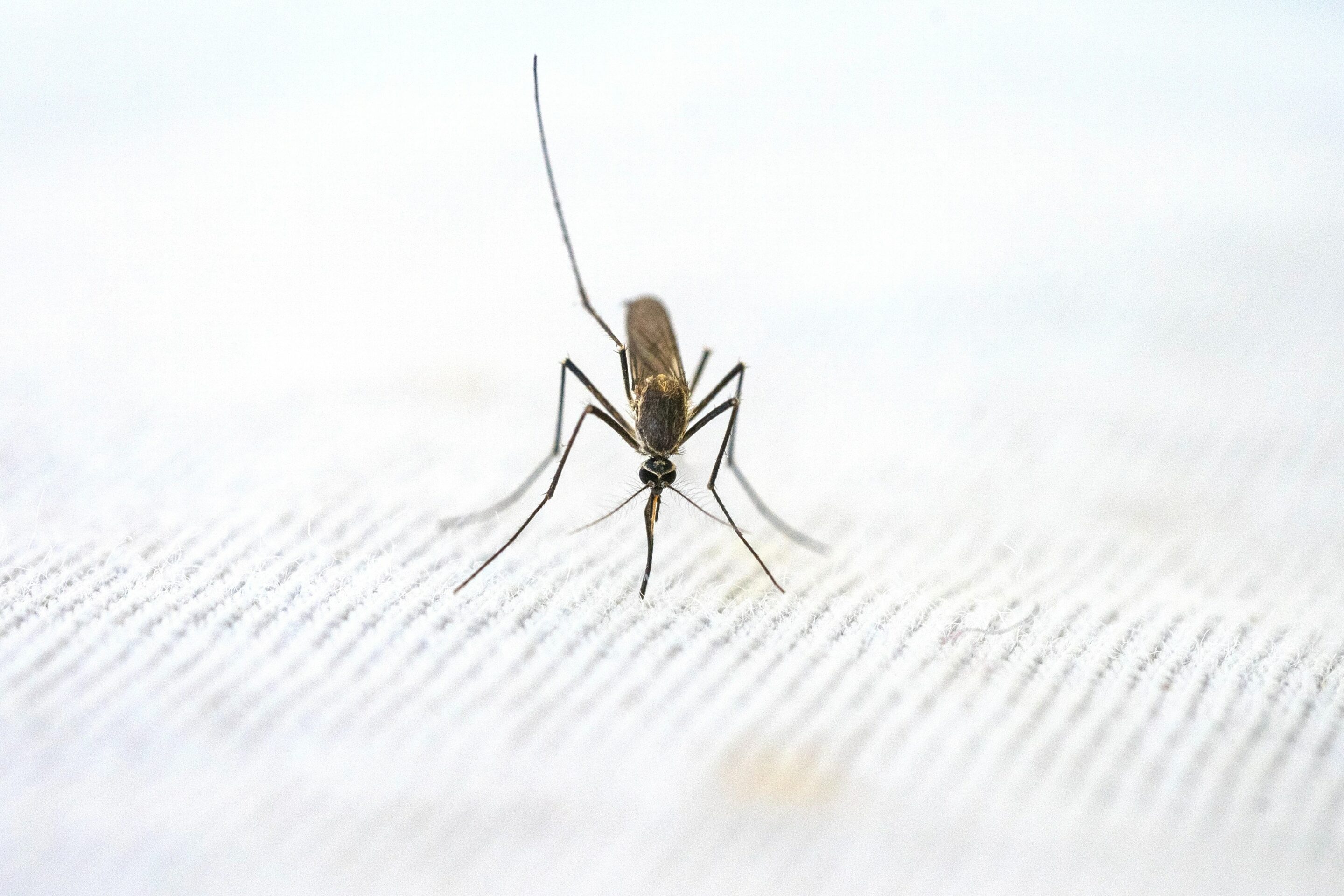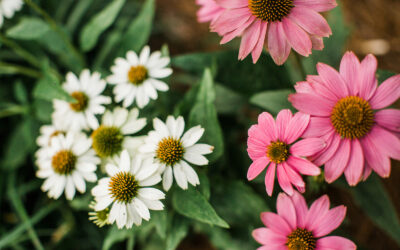When warm weather arrives, so do the mosquitoes. You hear them whining around your ears; you swat at them biting your bare arms and legs. And yet, if your aim is to be kind to the planet, you don’t want to blanket the area with chemicals to kill them (along with the pollinators that must be preserved). You also don’t want to be a mosquitos’ blood meal, either, while you’re out there enjoying your garden and landscape.
“Mosquitoes can have a great impact on our lives,” say University of Tennessee entomology professors Karen Vail and Reid Gerhardt in a fact sheet for Master Gardeners, “Mosquito Control Around Homes.”
“They can not only reduce our quality of life by ruining a relaxing evening on the patio but also harbor disease organisms and may readily pass them on to us and our pets.”
There are several ways to reduce the mosquito annoyances in your landscape. Here are three to consider:
Reduce mosquito habitat
Mosquitos require standing water to grow into those pesky adult insects. The experts explain that the larvae feed on microorganisms and organic matter and grow quickly, so eliminating, reducing and monitoring the places where water accumulates is the first line of defense.
Potential mosquito breeding sites can include clogged gutters, leaky water faucets, open containers, plant saucers, holes in tree stumps, neglected swimming pools or hot tubs or their covers, bird baths – any place water may sit undisturbed for several days.
Mosquito dunks – biscuit-shaped chunks of a natural larvicide, Bacillus thuringiensis israeliensis (Bti) – can be effective to keep a rain barrel or pond from becoming a breeding ground. A 16-mesh screen also keeps mosquitoes out of rain barrels, and experts suggest stocking a small garden pool or ornamental pond with mosquito-eating fish such as native top-feeding minnows or goldfish.
Spray – but do it safely
Mosquito control plans use a variety of products to rid a yard of mosquitoes. Gardens of Babylon’s mosquito control program uses a non-toxic (to people and pets) insecticide concentrate whose active ingredients are rosemary and peppermint oils.
“We use a fogger — a backpack blower — that aerosolizes the product and works primarily on mosquitoes,” says Bryce Marion, maintenance customer service manager at Gardens of Babylon. “We target any low-lying areas, turf areas, stagnant pools. We treat the beds and the turf, and we spray the greenery, where the bugs are going to rest.”
How much and how often to treat an area depends on the severity of the problem, Marion explains. “It could be a little as three treatments, up to 12 treatments. We typically start mid to late May and carry that through until mid-September, and can spray bi-weekly throughout that period.”
“It’s pretty simple,” Marion says. “Plus, because it’s rosemary and peppermint oil, it smells good.”
Incorporate repellent plants you can use
Can the garden itself be part of the solution? The natural oil in several strong-smelling plants is known to (or thought to) repel mosquitoes.
Merely growing the plants in your garden won’t be what keeps the insects at bay. It will be necessary to crush or chop the leaves to release the essential oils, but that in itself can be pleasant if you enjoy the fragrances yourself. And while the smell doesn’t kill the intruders, the strong fragrance may well keep them at a distance.
Here’s a selection of plants that have the potential for keeping mosquitoes from coming around, suggested by garden editors at Southern Living and other sources:
Lavender: The sweet perfume is in the spikes of purple flowers and the foliage. Try crushing stems from the plant and rubbing it on your skin (unless you’re allergic, of course).
Mint: Peppermint and other mints (including spearmint, chocolate mint and pennyroyal) grow and spread with abandon, so cut and crush as much as you like to sprinkle around the patio or deck chairs to repel mosquitoes.
Rosemary: The strong pine scent of Rosmarinus officinalis is a natural for keeping insects at bay. Try tossing a few sprigs on the grill to generate a little rosemary-scented smoke while you also add the flavor to sizzling meat.
Eucalyptus: In this part of the world, Eucalyptus globulus won’t survive winter in the ground, but if you’re growing it in a pot on the patio, plan for enough to sprinkle the fragrant crushed leaves throughout your outdoor gathering spots.
Marigold: The scent of marigold foliage is not pleasing to everyone, so it’s a pretty good bet that mosquitoes won’t like it, either. But it’s easy to grow, and the flowers are bright and colorful and last all summer.
Citronella: Through research and studies, there is some question around whether the so-called “Mosquito plants” actually repel mosquitoes. Nevertheless, the crushed leaves of Pelargonium citrosum, a member of the geranium family, have a pungent lemony fragrance that smells great, so why not enjoy it in your garden?
Are mosquitoes a serious problem in your landscape? Click here for a consultation and to get a quote on Gardens of Babylon’s Mosquito Control Service






0 Comments